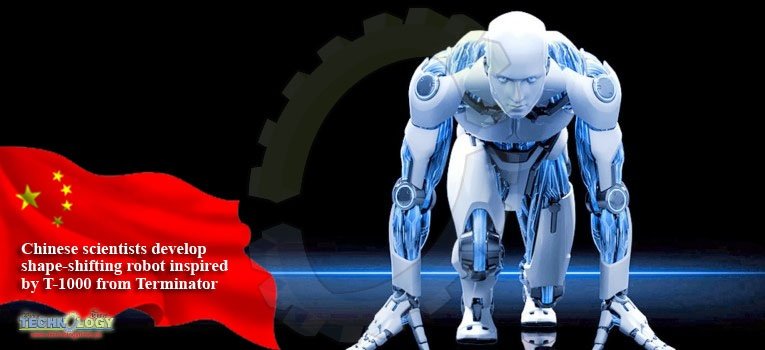Chinese scientists say they have developed a type of robot powered by liquid metal inspired by T-1000, the self-repairing, shape-shifting killer android from one of Arnold Schwarzenegger’s Terminator films.

The palm-sized robot comprises a plastic wheel, a small lithium battery and drops of liquid metal. The robot’s wheel rolls when the liquid metal changes the centre of gravity, which is controlled by altering the voltage through the embedded battery.
“We were inspired by T-1000 from Terminator 2: Judgment Day,” said Li Xiangpeng, a robotics professor at Soochow University in Suzhou, China.
Li designed the liquid metal robot prototype along with Zhang Shiwu from the University of Science and Technology of China, and researchers from the University of Wollongong in Australia.
Their research was published in scientific journal Advanced Materials last week.
“In the future, we expect to further develop soft robots incorporating liquid metal that could be used in special missions such as searching for and rescuing earthquake victims, since they can change shape to slide under doors or make it through spaces humans can’t get into,” said Tang Shiyang, a research fellow with the University of Wollongong, who was also involved in the study.
The team began work on the project six years ago, when materials scientists discovered the unique properties of liquid metal alloys – high electrical conductivity, controllable surface tension and extreme flexibility, Li said.
“We think liquid metal alloys could help with the development of self-reconfiguring robots that can change their own shape,” Tang said. “Also, I have been thinking about flexible robots like T-1000 since I watched that film when I was 10.”
Though far from the chilling killer robot in the 1990s blockbuster, researchers said their design could bring humans a step closer to soft robotics made from highly compliant material that resembles living organisms.
“Tiny nano-robots could deliver cancer drugs and hunt down tumour cells inside the human body, given its flexibility and high energy conversion rate,” said Li, adding that they could also be used by the military for espionage.